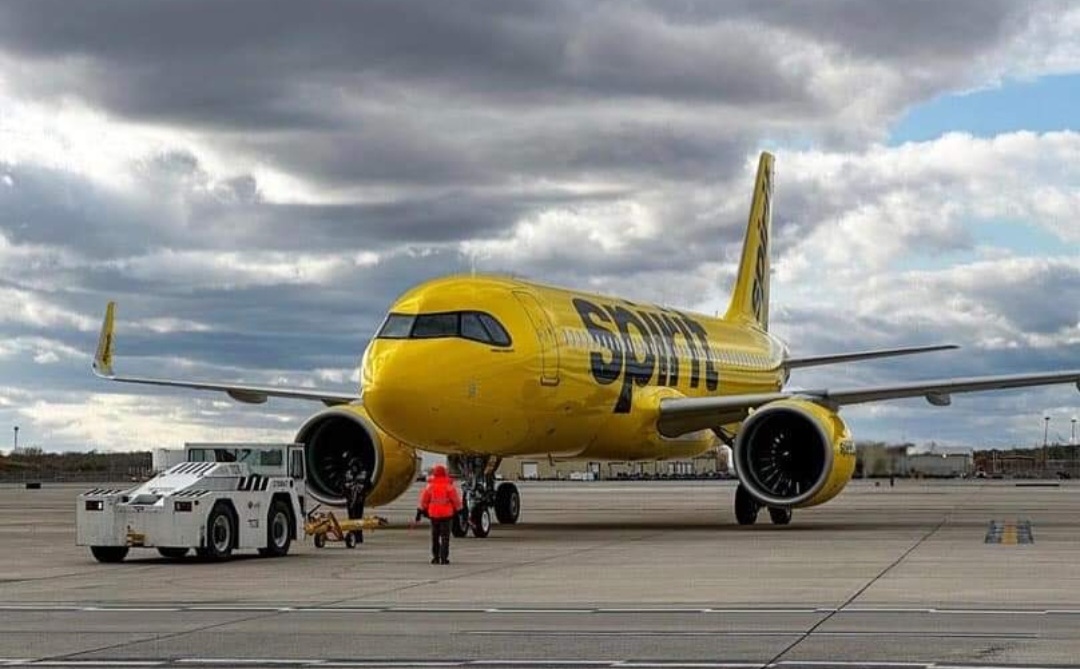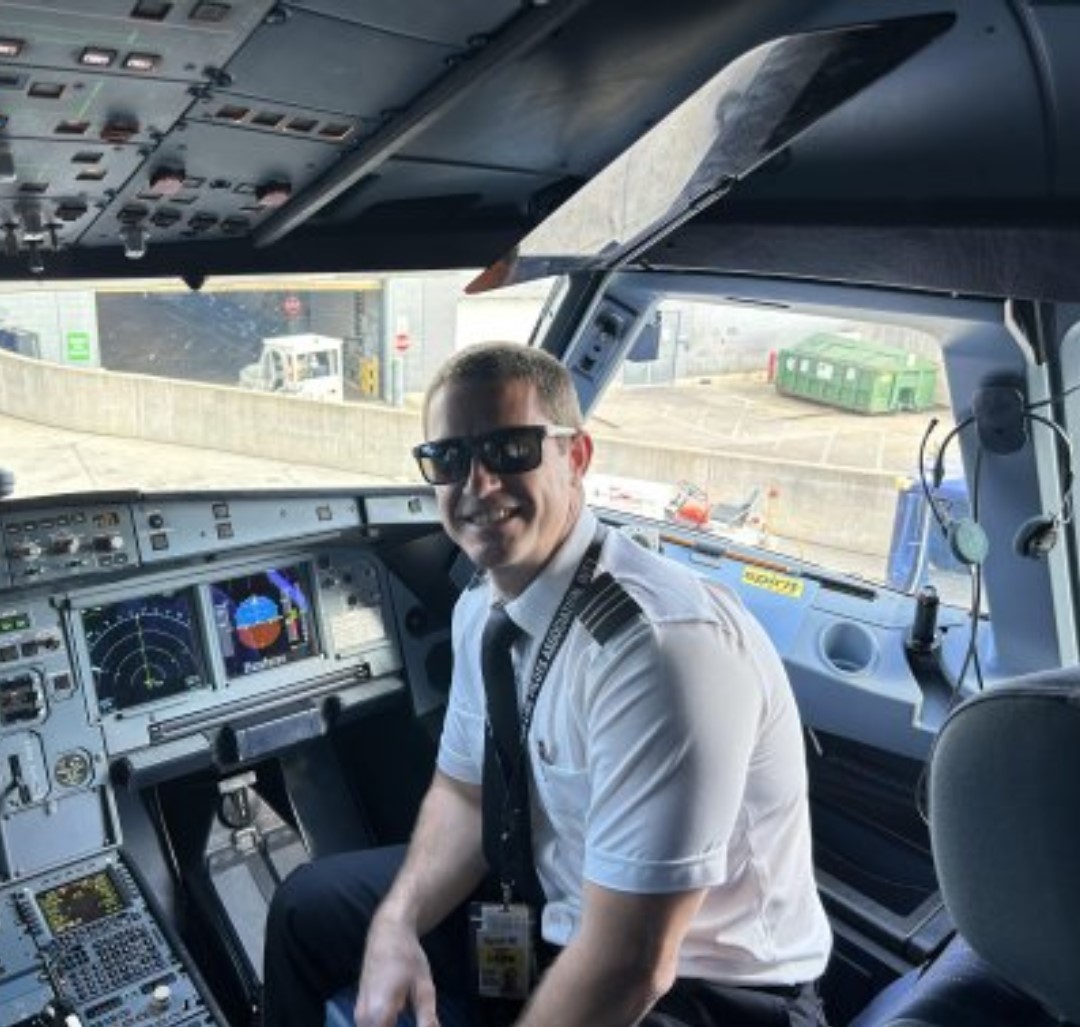Up, up and away with Martin Grace
One of the things that stands out for me with Wesley is that from early on in our education, we were encouraged to think about what we wanted to do as a career.
I always liked to follow my brother Warrick's (OW2002) lead and he loved anything with engines. Trains, motorbikes, cars, you name it. My brother started racing go karts and a little while after, I began racing go karts too. Being a professional racing car driver is very difficult, but I thought about the idea of driving something. My mother tells a story about being at the Avalon Air show with me when I was a toddler; I pointed to the planes and said, “I fly, I fly!” I had come up with the idea of driving planes – that could be fun!

Training to be a pilot is very expensive, an investment of between $80,00 to $150,000 at the time I was looking to train. I was only 16 and teenagers can have a short attention span. For this reason, my mother did some research and found a course I could attend after school one night a week at Ivanhoe Grammar. It included basic theory and 10 hours of flying training out of Essendon Airport. I really enjoyed it, and decided I wanted to be a pilot.
At that time, airlines like QANTAS, when advertising for pilots, stated in the job description the desire for a degree of some sort. Swinburne University of Technology was one of the first universities to offer a Bachelor of Aviation that was linked with a flying school to provide flying training and after some research, I worked out I needed to obtain a certain score to be accepted into that course.
The problem I then faced was my grades. I had been very lazy at school, hadn’t applied myself and Years 10 and 11 were a bit of a struggle. It came to a head on my first day of Year 12 when I was ‘invited’ into the careers counsellor’s office to be told that with my current grades, I would not pass the subjects I had selected to take in Year 12, and it was more than likely I wouldn’t graduate. I was adamant I needed to take these subjects as I wanted to get into that particular course. So, I studied at recess and lunch and all weekend and managed to get the ENTER score required to get into my course. An invaluable life lesson for me – hard work really does pay off! I didn’t realise at the time but that would be the tip of the iceberg for the hard work that was coming.
The university course was full-time for three years; part of the time at Swinburne’s Glenferrie Campus, studying things like first year engineering, mathematics and physics, human factors, structures and an advanced research project (all with an aviation theme). The other part of the course was spent at Moorabbin Airport studying for my pilot’s licence and completing the flying training. The subjects taken at the airport would be credited towards the Bachelor Degree. I completed my Private Pilot Licence, Commercial Pilot Licence, Command instrument rating and an instructor rating. The next step was to find a job!

Working in aviation is about experience. Hours mean experience. I had to get a job to get my hours up to get my experience so I could work for an airline. I exhausted all attempts in Melbourne to find work and decided I needed to leave home and move to where there was more opportunity. Generally, a pilot’s first job will be in the northern parts of Australia; Torres Strait Islands, Arnhem Land, Darwin or the Kimberley. I was lucky enough to get my first job out of Cairns flying scenic flights over the Great Barrier Reef. I loved that job. It evolved over four years from one-hour scenic flights to government charters where I met Tony Abbott.
After four years working in Cairns, I wanted a new challenge and to fly bigger and faster aircraft. I moved to Darwin where I worked for Chartair, a charter company that operated around the NT and into WA. I was the Senior Base pilot for just over two years, flying five different types of aircraft. This company, although challenging, was a great stepping-stone to bigger and better things.
After a few years working in Darwin, I was introduced to an aeromedical company that holds the contract to provide aeromedical retrieval services to the NT government. I worked at Careflight for 6.5 years, providing this vital aeromedical service. Again, another fantastic job, working in a close-knit team, providing medical care to Australians over the top end of the NT.
Aviation is a very fickle and competitive industry. I have friends that had spent years in remote communities working in pubs and bars, pouring beers trying to land their first jobs. I also had a lot of friends that did very well in their careers and were flying for airlines like QANTAS after only a few short years in General Aviation. Then COVID happened. The industry went stagnant, and a lot of people were out of work. I was very lucky as at that time, I was flying for an aeromedical company so was therefore able to keep working.
As we came out of COVID, the industry started to boom again. The opportunities I found working in the United States were amazing. Fantastic work schedule flexibility, great progression opportunities and of course, amazing money. As I mentioned, the industry is fickle, so I decided to jump on the opportunity while it was available.
I am now living in Fort Lauderdale, Florida and working as a First Officer flying the Airbus 320 family of aircraft which consist of the A319/A320/A321. The destination list is all over the USA and into South America; the travel benefits are amazing, and the work life balance is great. However, aviation is a difficult career. It’s a lot of time spent away from family and friends, missed birthdays, Christmas dinners and special occasions. But it truly is a beautiful career. A lot of hard work, a lot of challenges, stress, simulator sessions, training, training and more training! But it is very rewarding and you’re always learning, always being challenged and there is always something new to see and someone new to meet.
Even if I could do it all again, I would not change any of it. I have seen some amazing things, met amazing people and have a lot of stories to tell from my time flying around Australia and now America.
Martin Grace (OW2006)
